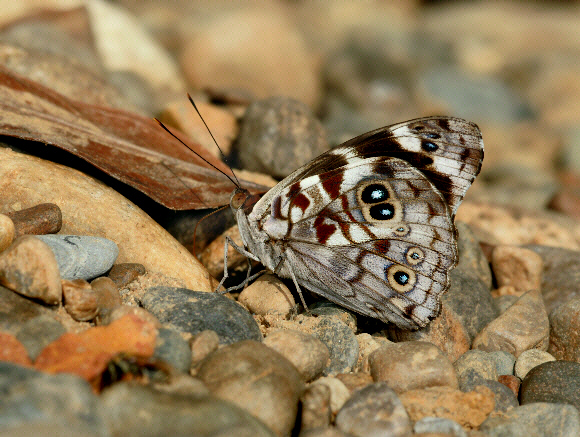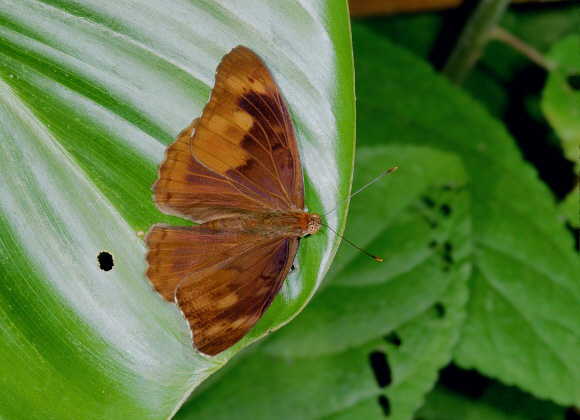 Eunica malvina, male, Rio Madre de Dios, Peru – Adrian Hoskins
Eunica malvina, male, Rio Madre de Dios, Peru – Adrian Hoskins
Introduction
The genus Eunica contains 40 species colloquially known as Purplewings due to the dazzling purple or metallic blue iridescence on the uppersides of the males. Females lack the iridescence, and are typically a dull earthy brown colour with a diagonal white band across the forewings. The underside hindwings of most species are beautifully marbled, and bear a distinctive arrangement of ocelli.
There is a vague hint of purple at the base of the upperside in the male of malvina but this butterfly lacks the deep purple lustre found in many other Eunica species.
Eunica malvina is distributed from Mexico to Brazil and Peru.
 Eunica malvina, male, Rio Madre de Dios, Peru – Adrian Hoskins
Eunica malvina, male, Rio Madre de Dios, Peru – Adrian Hoskins
Habitats
This species is found in deciduous and evergreen forests at altitudes between 0-800m.
Lifecycle
The lifecycle of Eunica species in general is poorly known and I can find no published details of the early stages of this species. The eggs of most Eunica species are laid singly on the flowers and leaf buds of trees including Mabea ( Euphorbiaceae ) and Bursera ( Burseraceea ). The larvae are likely to vary considerably in colouration and pattern from species to species, but generally have short spines along the sides, and a single row of longer erect spines on the last 3 segments of the body.
Adult behaviour
Females are normally encountered singly, flying in light gaps in the forest understorey or basking on bushes along forest trails. Males also bask on foliage, particularly in late afternoon when storm clouds begin to gather. They are also often seen in two’s and three’s on river beaches and dry river beds in mixed aggregations.
